Helen Suzman Foundation Newsletter – November 2023
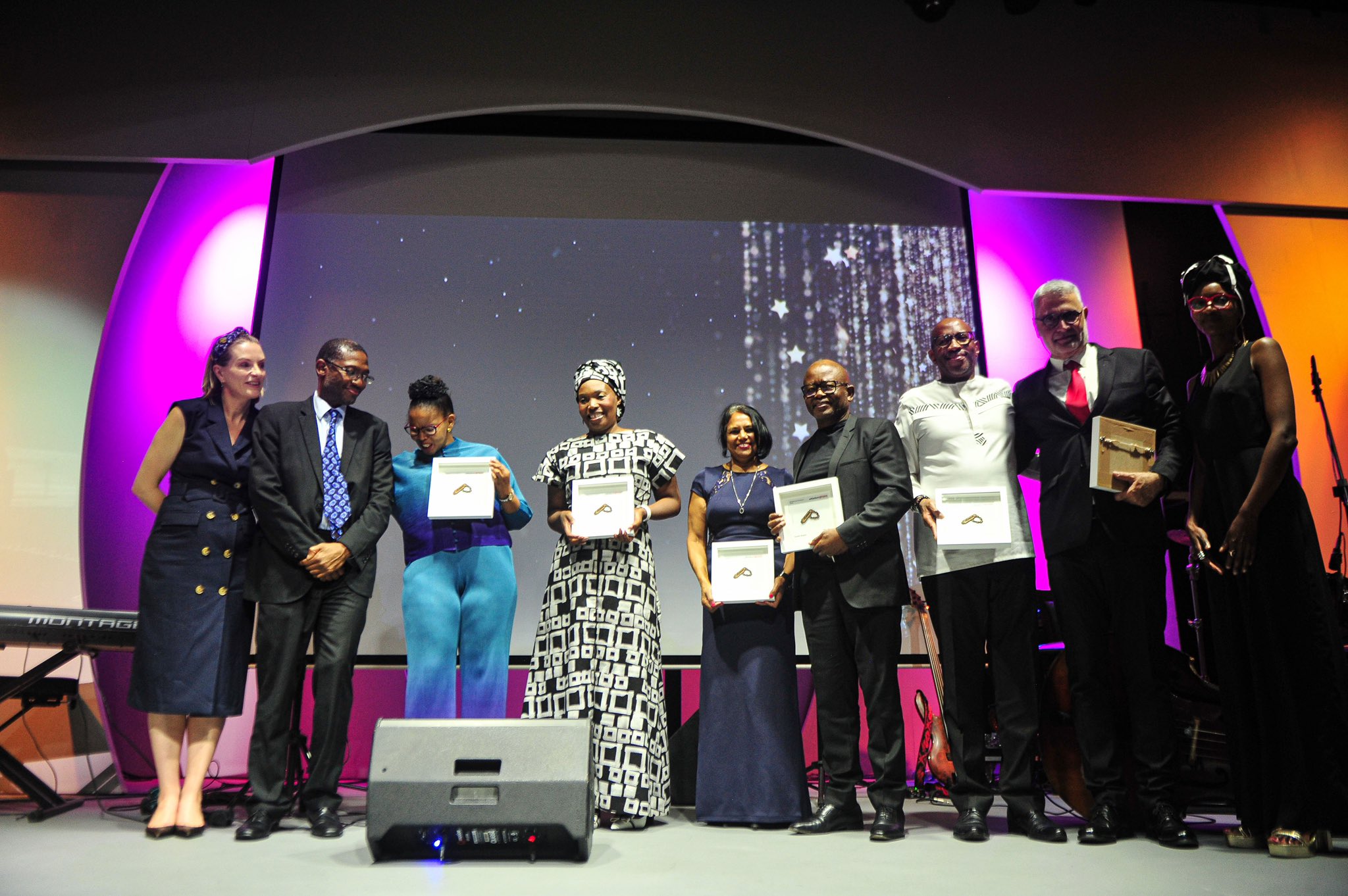
I was recently very lucky to have been asked by Public Interest SA’s Tebogo Khaas to participate in the judging panel of its inaugural Whistleblower Awards. These awards were, as keynote speaker and former Deputy Chief Justice Dikgang Moseneke observed, a way for us to pay tribute to “brave and ethical lives”. But while it was certainly uplifting to be part of an evening acknowledging these individuals for whom far too little acknowledgement has been given, it was also a poignant reminder of why so many are forcefully deterred from reporting wrongdoing: some of the whistleblowers honoured at the awards were unable to join us as their lives remain in danger and individuals like Babita Deokaran, for whom Judge Moseneke reserved his final words of tribute, are dead for having dared to ring alarm bells.
We are now approaching a year and a half since the final part of the report of the State Capture Commission was handed over to the President and made public. HSF, like so many others in civil society, is trying to do what it can to ensure implementation of that report’s recommendations and that accountability ensues for the extensive and flagrant criminal conduct and undermining of our system of constitutional governance that was revealed. But there is going to have to be much more immediate and decisive progress on implementation if the State Capture Commission is really to have mattered.
In the sections below, we set out some of the other work we’ve been undertaking in recent months.
As always, we’d love to hear your thoughts.
Nicole
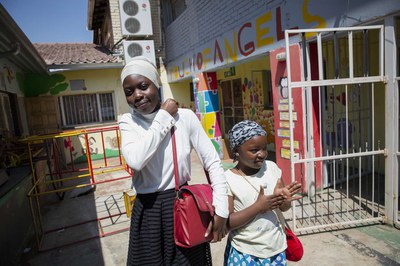 Where We Are in Our Zimbabwean Exemption Permit Litigation
Where We Are in Our Zimbabwean Exemption Permit Litigation
Since our last newsletter, there have been four noteworthy developments in HSF’s Zimbabwean Exemption Permit litigation. First, HSF was successful in its main application to review and set aside the Minister of Home Affairs’ (Minister) decision to terminate the Zimbabwean Exemption Permit (ZEP). On 28 June 2023, a full bench of the Pretoria High Court (Court) held that the decision was unlawful for failing to follow a fair and rational process – and ordered that the ZEP remain in force until the Minister had done so within the following twelve months. Second, on 16 October 2023, the Court held that the Minister’s application for leave to appeal its June 2023 judgment had no prospects of success. Third, On 26 October 2023, the Court heard HSF’s application to enforce its June 2023 order after the Minister promised to continue the appeal process at the Supreme Court of Appeal. HSF brought its enforcement application out of necessity after the Minister twice refused requests by HSF to abide by the Court’s June 2023 order and keep the ZEP in force on his own while he pursued the appeal process. Fourth, on 6 November 2023, the Court delivered judgment in which it declined to order that the ZEP remain in place for the full length of the Minister’s appeal process. However, the Court provided desperately needed clarity for ZEP holders when it confirmed that the ZEP remains valid until at least the end of June 2024, even as the Minister pursues his appeal.
Court papers and judgments for this matter can be read here.
 HSF Joins Land Redistribution Litigation
HSF Joins Land Redistribution Litigation
At its recent conference marking 110 years since the 1913 Natives Land Act was passed, the South African Human Rights Commission rightly lamented the lingering legacy of injustice which that legislation has left behind. Among the manifold state dysfunctions responsible for sluggish land reform in South Africa is the Department of Rural Development and Land Reform lacking a clear policy framework by which it adjudicates applications for land redistribution. That policy vacuum has now resulted in litigation, led by the Legal Resources Centre, after three black farmers, Johannes Bezuidenhout, Herold Bezuidenhout and Jan Bergh, were inexplicably denied a 30‑year lease on land that they have productively farmed since 2009. HSF has asked to join the matter, as a friend of the court, to make submissions aimed squarely at addressing the Department’s failure to draft a coherent policy framework for land redistribution. HSF intends to submit that the Department has failed in its constitutional duty to establish a clear, reasonable and uniform legislative and regulatory framework to implement land redistribution; and that it should conduct an audit of all its existing policies and guidelines, after which it should publish a uniform set of policies and guidelines.
The Legal Resources Centre’s court papers can be read here.
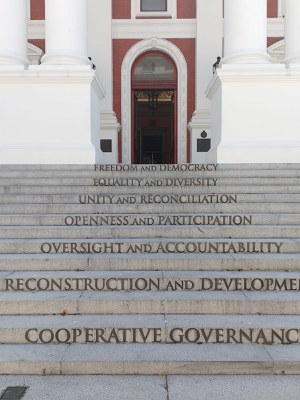 HSF Advocates for Checks on Executive Appointment Power
HSF Advocates for Checks on Executive Appointment Power
The State Capture Commission’s Report is now nearly two years old. Among its many cautionary tales is that concentrated executive power over appointments to high‑level government positions disposes the state to corruption and maladministration. This warning was echoed recently by SIU Head, Adv. Andy Mothibi speaking at a conference on implementing the Report’s recommendations, jointly organised by the Public Affairs Research Institute (PARI) and the Council for the Advancement of the South African Constitution (CASAC). Since our last newsletter, HSF has made three written submissions on proposed legislation, followed by three oral presentations before Parliament, that advocated for checks on executive power over key appointment processes.
Public Service Amendment Bill
While this Bill laudably proposes to devolve administrative power over government departments away from their political heads, it left unchanged the sole power of the President and Premiers to appoint national and provincial administrative heads of department. H SF submitted that this concentrated executive power should be checked by allowing the Public Service Commission to play a decisive role, alongside the executive, in appointing national and provincial Directors-General.
HSF’s submission can be read here.
PARI and CASAC’s Conference can be viewed here.
National Prosecuting Authority Amendment Bill
HSF welcomed this Bill’s proposal to make the Investigating Directorate Against Corruption (Directorate) a permanent corruption-fighting structure within the National Prosecuting Authority (NPA). Nonetheless, HSF cautioned that if the Directorate is to be a truly effective independent corruption-fighting unit, the NPA’s top leadership, under whose management the Directorate would ultimately fall, could not continue to be appointed solely by the President and the Minister of Justice.
HSF’s submission can be read here.
Independent Police Investigative Directorate Amendment Bill
This Bill, inexplicably, proposes to exclude parliament from the process for appointing the Independent Police Investigative Directorate’s (IPID) Executive Director. Instead, it provides that he/she be appointed by the Minister of Police in concurrence with Cabinet. HSF’s submission cautioned that such a concentration of appointment power in the executive could not be reconciled with IPID’s institutional independence, enshrined in section 206(6) of the Constitution.
HSF’s submission can be read here.
 HSF Advocates for Institutional Capacity to Combat Gender-Based Violence and Femicide
HSF Advocates for Institutional Capacity to Combat Gender-Based Violence and Femicide
Earlier this year, HSF made written and oral submissions to Parliament’s Portfolio Committee on Women, Youth and Persons with Disabilities (Committee) regarding government’s plans to establish the Council for Gender‑Based Violence and Femicide (Council). The Council is intended to build the state’s institutional capacity in the fight against gender-based violence and femicide in South Africa. HSF submitted, among other things, that the Council include representatives from the National Prosecuting Authority and the Department of Basic Education – and that it be made accountable to Parliament. This, because each of these institutions is an indispensable stakeholder in a holistic state response to gender‑based violence and femicide. When the Committee revised the Council’s composition, HSF was pleased to see that it accepted our submissions. We look forward to any further contributions that HSF can make as the Council carries out its important work.
Read HSF’s submissions here.
The Committee’s revisions can be viewed here.
HSF’s presentation to the Committee can be viewed here.
 Little Nana Starts Her Journey
Little Nana Starts Her Journey
Little Nana is a 4.5m high giant puppet of a 10-year-old Zimbabwean migrant child at the heart of the #SameCampaign. She represents the challenges faced by migrants, and the courage required to seek a better life in a foreign country. Little Nana was built by Roger Titley and his workshop in Wilderness. Her debut was made possible by a collaborative partnership between HSF, the OHCHR, the Raith Foundation and Lawyers for Human Rights.
Little Nana's first appearance was at the Brixton Light Festival, where she was welcomed by the Field Band Foundation and the National Youth Orchestra and over 2500 festival goers. She has now embarked on her journey across South Africa where she has been warmly received by groups of children who walked with her through their neighbourhoods, asking questions and offering creative solutions for her well-being. The campaign aims to encourage kindness and curiosity towards migrants and raise awareness about their rights and experiences. It promotes a society based on values like respect, equality, and safety for everyone.
Learn more at www.nana.africa.
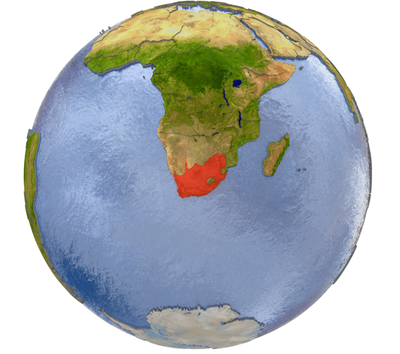 South Africa in the World: Reimagining South Africa in an Increasingly Unpredictable World
South Africa in the World: Reimagining South Africa in an Increasingly Unpredictable World
Understandably in recent years, those in South Africa concerned for rule of law and constitutionalism have been almost exclusively preoccupied with domestic developments – at attempts to rehabilitate state institutions and secure accountability of those who staged the assaults. The crisis of our constitutional democracy has meant that concern for foreign policy may have seemed a luxury we couldn’t afford. But recent global crisis and the implications these have for the global order – and the responses sought of South Africa from bilateral partners and multilateral institutions – has made clear that any notion that we might domestically get our house in order before attempting some global role is illusory.
For this reason, HSF has inaugurated its new “South Africa in the World” project. HSF’s new foreign policy research fellow, Azwimpheleli Langalanga attended the African Growth and Opportunity Act (AGOA) summit held in Johannesburg last week which negotiated ongoing participation of African states in preferential access to United States markets and related foreign policy objectives.
His brief explaining AGOA, its aims and context is available here.
His opinion piece explaining the geopolitical context of AGOA, published in the Sunday Times, is available here.
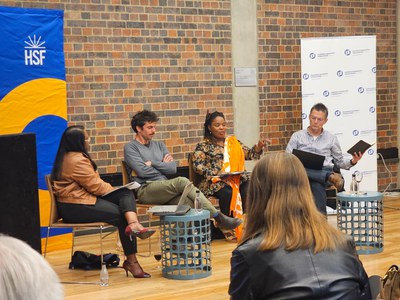 Buried in Gold: A Non-existent Regulatory Framework for Mining in South Africa
Buried in Gold: A Non-existent Regulatory Framework for Mining in South Africa
Artisanal mining in South Africa continues to make headlines for operating dangerously outside of the law – to the mutual detriment of artisanal miners and the communities in which they operate. To understand how best artisanal mining can be brought under a workable regulatory framework, HSF hosted a roundtable discussion on 28 September 2023. We were delighted to be joined by journalist, Kimon De Greef, who provided a gripping first-hand account of the artisanal mining community in Welkom that was inspired by his New Yorker piece, ‘ The Dystopian Underworld of South Africa’s Illegal Gold Mines’. Mining historian, Professor Keith Breckenridge revealed how artisanal mining had its roots in the early mining history of South Africa. And, social activist , and mining lecturer at the University of Witwatersrand, Dr Janet Munakamwe, gave insight into how migrant communities engage in artisanal mining.
The discussion can be viewed here.
Kimon’s New Yorker article can be read here.
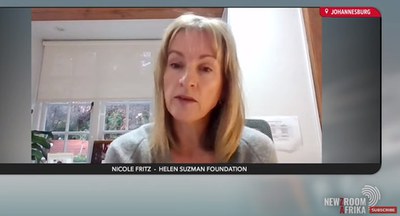 A Snapshot of HSF’s Recent Media Appearances
A Snapshot of HSF’s Recent Media Appearances
Since our last newsletter, the HSF team made the following notable appearances in the media:
Op-eds
-
HSF’s Executive Director, Nicole Fritz called out Elon Musk’s dangerous opposition to content moderation on Twitter/X in her piece, ‘X marks the spot where the fundamentals of democracy were put to the torch’, published by the Daily Maverick, accessible here.
-
Nicole also urged South Africa to take a leadership role in global migration policy in her piece titled, ‘ SA must take the lead in urging global framework for treatment of migrants’, available here.
-
HSF Researcher, Ezekiel Kekana warned against the dangers of anti‑migrant sentiment in two pieces:
TV News
-
Nicole Fritz, welcoming the ZEP’s extension to 31 December 2023 on Newszroom Afrika, available here.
Radio News
-
Nicole Fritz on Radio 702 on how South Africa steered clear of breaching its international obligations in respect of President Putin’s participation in the BRICS Summit, available here.
-
Nicole Fritz on Cape Talk on South Africa possibly revising its obligation in terms of International Criminal Court arrest warrants, available here.

